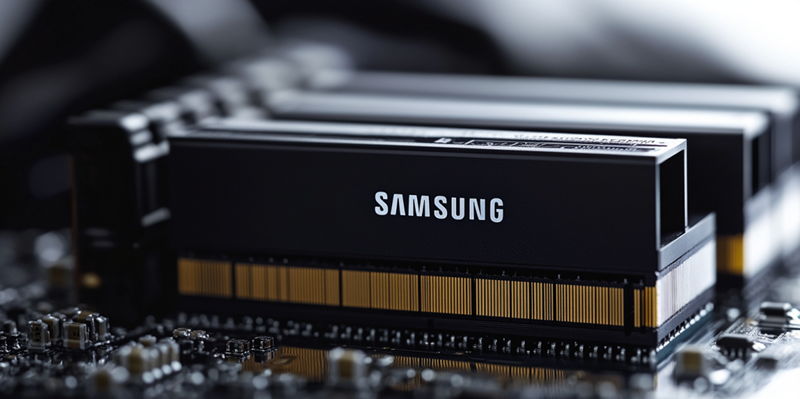In a recent strategic push, Samsung remains optimistic about securing NVIDIA as a major client for its HBM (High Bandwidth Memory) products, specifically the fifth-generation HBM3E memory. This optimistic outlook arises even amid previous concerns that Samsung might have failed to solidify its position in NVIDIA’s supply chain. Earlier, the uncertainty about winning over NVIDIA led to widespread belief that Samsung could not firmly establish its presence as NVIDIA’s supplier, causing a significant blow to its ambitions. Despite these challenges, Samsung’s commitment to expanding its footprint in the competitive AI market continues to drive its efforts toward integrating HBM3E into NVIDIA’s flagship AI accelerators by the next quarter.
Quality Testing and Production Progress
During a recent earnings call, Samsung disclosed that it is on the path to becoming an official supplier for NVIDIA, with its HBM3E memory currently undergoing quality evaluations with an undisclosed major customer. Although Kim Jae-jun, VP of Samsung’s Memory Business Division, did not explicitly name NVIDIA in his statements, industry analysts widely speculate that NVIDIA is the customer in question. Samsung’s VP revealed that both the 8-stack and 12-stack configurations of HBM3E are in mass production and have already been sold, marking significant milestones in the rigorous quality testing process. The company anticipates expanding sales in the fourth quarter, signaling confidence in passing the final testing phases.
Samsung’s aspirations extend beyond merely making inroads with HBM3E, as it aims to supply enhanced versions of HBM3E for next-generation GPU projects of its major customers, indicating a potentially long-term relationship with NVIDIA. Successfully integrating its HBM products into NVIDIA’s flagship AI accelerators would be a substantial achievement, solidifying Samsung’s standing as a key player in the AI technology supply chain. This strategic move is part of Samsung’s broader ambition to consolidate its influence and competitive position within the AI memory market.
Looking Ahead to HBM4 and Beyond
In a recent strategic initiative, Samsung remains hopeful about winning over NVIDIA as a major client for its High Bandwidth Memory (HBM) products, particularly the fifth-generation HBM3E memory. This positivity comes despite earlier concerns that Samsung might have struggled to secure a spot in NVIDIA’s supply chain. Rumors previously suggested that the uncertainty about securing NVIDIA’s business could have hampered Samsung’s ambitions, leading many to believe that Samsung had missed its chance to firmly establish itself as a supplier for NVIDIA. However, Samsung is undeterred by these obstacles and remains dedicated to expanding its influence in the competitive AI market. The company is now fervently working towards integrating its HBM3E memory into NVIDIA’s top-tier AI accelerators by the next quarter. This effort reflects Samsung’s commitment to not only fortify its market position but also to innovate in the fast-growing AI sector, aiming to forge stronger collaborations with industry leaders like NVIDIA.

